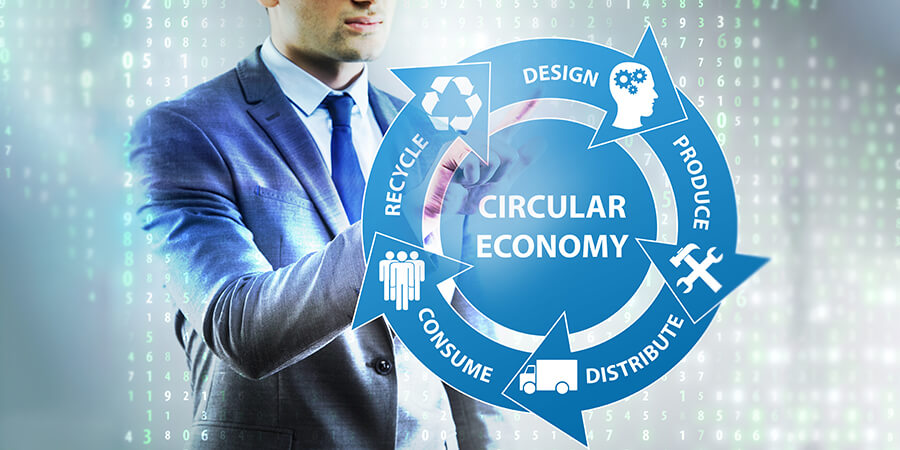A circular economy entails reusing products, rather than scrapping them and then extracting new resources. Telecommunications players have been heeding the call to promote the circular economy within their own field and market, however, a lot remains to be done.
Despite the benefits, only 8.6% of the world economy is circular, which means that less than 10% of materials used in a year are reused. This comes at a time when environmental pollution is at the highest it’s ever been, and the earth is set to see temperatures rise by 1.5℃ in the next decade.
Nine in ten telco operators believe the circular economy is important to their organization and 89% say it’s part of their current business strategy, yet only 44% plan to buy pre-owned equipment over the next five years, according to research conducted by TXO.
This disparity is justified by four statistical industry barriers: 33% of operators think pre-owned telecom network equipment is less reliable than new, and 21% believe it is more expensive. 49% say the circular economy supply chain is too complex, while 33% say there isn’t enough information about how to join the circular economy.
The circular economy is a model that keeps products in the economic system for as long as possible, reducing the environmental impact by creating fewer new products. But, while 75% of operators in TXO’s survey say they’ll recycle equipment over the next five years, only 52% say they’ll be repairing equipment, only 49% will resell it and only 44% of operators say they will buy refurbished equipment. This shows that operators are still not committing to a full circular economy.
The benefits of opting for a circular economy are numerous for telecom operators. One of the main gains is the lowering of carbon emissions to reach net-zero emissions by 2040. Moreover, 84% of operators believe the circular economy can help solve supply chain challenges and accelerate network deployment. As many of the world’s major OEMs face supply chain issues due to the pandemic as well as security concerns over both China and the Ukraine conflict, 72% of operators think supply chain challenges will be a problem for network deployments over the next year.
Decreasing costs is also an important outcome of the circular economy, especially when operators are upgrading their networks to 4G, 5G and FTTx.
Moreover, 70% of operators believe joining the circular economy offers huge advantages by minimizing waste. The GSMA estimates that around 50 million tons of e-waste is produced every year, a figure that continues to rise. E-waste consists of the electrical or electronic devices either discarded or reaching the end of their useful life. If E-waste isn’t recycled, it goes straight to landfill and is hugely damaging to the environment.
26% of operators consider “market differentiation” as an advantage to joining the circular economy, with a quarter (25%) valuing “knock-on benefits for customers/retention” and the same number claiming “shareholder value”. This indicates that some believe joining the circular economy improves their reputation among customers and gives them a competitive advantage.
The circular economy enables telecom operators to accelerate network roll-out as well as reduce their carbon footprint, minimize waste, reduce costs and ease pressures on supply chains. According to the GSMA, globally, two-thirds of mobile network operators have committed to rapidly reducing their carbon emissions over the next decade, including their supply chain emissions. Around one-third have gone even further, pledging to reach net-zero for their value chain emissions by 2050 or sooner.
Adopting the culture of a circular economy is the first step towards reaching those ambitious goals. Such a commitment can also boost innovation, given the scarcity of some raw materials that constitute the components of much network equipment. The recovery of those materials in waste and their re-use in production lines can help reduce the need for primary mining with its associated environmental impacts.
The telecom industry should raise awareness on the necessity to transition to a circular economy, a move that aims to enhance the sustainability, and thus the continuity of the sector amid global challenges that can indeed be overcome with such forward-thinking, environmentally-friendly strategies.
New concepts are not always welcomed, of course. However, when their efficiency is proven, adoption should become mainstream, especially as they stand to benefit the whole industry, one which is considered the backbone of all other industries.









